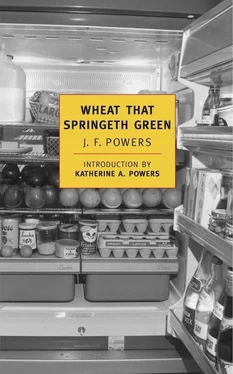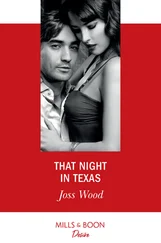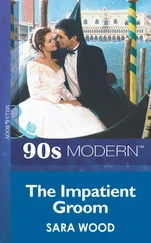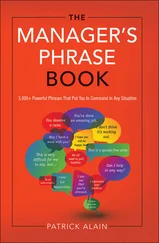J. Powers - Wheat That Springeth Green
Здесь есть возможность читать онлайн «J. Powers - Wheat That Springeth Green» весь текст электронной книги совершенно бесплатно (целиком полную версию без сокращений). В некоторых случаях можно слушать аудио, скачать через торрент в формате fb2 и присутствует краткое содержание. Год выпуска: 2000, Издательство: NYRB Classics, Жанр: Современная проза, на английском языке. Описание произведения, (предисловие) а так же отзывы посетителей доступны на портале библиотеки ЛибКат.
- Название:Wheat That Springeth Green
- Автор:
- Издательство:NYRB Classics
- Жанр:
- Год:2000
- ISBN:нет данных
- Рейтинг книги:5 / 5. Голосов: 1
-
Избранное:Добавить в избранное
- Отзывы:
-
Ваша оценка:
- 100
- 1
- 2
- 3
- 4
- 5
Wheat That Springeth Green: краткое содержание, описание и аннотация
Предлагаем к чтению аннотацию, описание, краткое содержание или предисловие (зависит от того, что написал сам автор книги «Wheat That Springeth Green»). Если вы не нашли необходимую информацию о книге — напишите в комментариях, мы постараемся отыскать её.
Wheat That Springeth Green — читать онлайн бесплатно полную книгу (весь текст) целиком
Ниже представлен текст книги, разбитый по страницам. Система сохранения места последней прочитанной страницы, позволяет с удобством читать онлайн бесплатно книгу «Wheat That Springeth Green», без необходимости каждый раз заново искать на чём Вы остановились. Поставьте закладку, и сможете в любой момент перейти на страницу, на которой закончили чтение.
Интервал:
Закладка:
From that point on, Joe, who hadn’t taken a pot, won steadily. Later, much later, after a lot of standing around, though Joe himself was sitting down, and a lot of talk about cars and driving, Joe left St Isidore’s with Bob, he thought, and the next thing he knew, not counting a bad dream—“Mrs Boots, come and get Cox!”—he was in bed and it was morning. He couldn’t remember how the night had ended, and didn’t want to, but had the presence of mind not to phone the police after he looked out the window and saw his car was missing from its usual place in the driveway. He took a hot bath, and in the course of it, soaping himself, he discovered and examined the marks on his right ankle — superficial wounds, five in number. They made him think of Our Lord but otherwise didn’t hurt. He painted them with antiseptic, dressed, and went downstairs, armed only with a ruler (his cane was on the back porch), and got going again.
7. CARRYING ON
THE END OF another day, another month, another year, the afternoon of New Year’s Eve, and the rest of the staff at Archdiocesan Charities had left early, or so Joe had thought until Mrs Hope looked in on him.
“A young priest to see you, Father.”
Joe was glad to see a young priest dressed like a priest.
“Ed Butler, Father.”
The name meant nothing to Joe, but for the young man’s sake he said, “Oh, yes. Sit down.”
“It’s not about Charities, Father.”
“Good.”
“Father, I’m here to ask your advice.”
“Don’t.”
“Don’t?”
“That’s it — my advice.”
Father Butler frowned, disapproving of such levity or taking it seriously, in either case proving that he was, though properly dressed, of his generation. “Then I’m afraid it’s too late, Father.”
“Yes, well, it usually is.”
Father Butler frowned. “The pastor’s retiring, you know.”
Joe nodded, hoping the pastor’s identity would soon be made known to him.
“I got the idea”—the young man seemed to regret the idea—“of collecting a purse for him. The opposition — Father, you wouldn’t believe it — from the people.”
Thus the pastor’s identity was, almost certainly, made known to Joe. “I’d believe it,” he said.
Father Butler frowned. “Reason I came to you, Father, you’re from the parish, the pastor says.”
“Hold it. Is he in on this?”
Father Butler blushed. “Oh no, Father.”
“Didn’t put you up to it?”
“Oh no, Father.”
“But knows about the purse?”
“Father, that’s what makes it so bad — so sad .”
Yes and no, Joe thought. “Seen Toohey yet? He’s from the parish, you know.”
“Just talked to him at the Chancery, Father. Form a committee was his advice. Only I already tried that. Nobody’d be on it.”
“Hah. What’d Catfish say to that?”
“Beg your pardon?”
“What’d Toohey say when you told him that?”
“I didn’t tell him that, Father.”
“Should’ve, Father. You had him and you let him get away. He give you anything — except advice?”
Father Butler blushed. “That’s all I went to him for, Father. That’s all I’m here for, believe me.”
Joe did. “O.K. The advice here is forget the whole thing. This could be one of those odd times when the voice of the people really is the voice of God. They still call him Dollar Bill?”
“They may.”
“They do, you mean.”
“Father, if you’d been the pastor there as long as he has — thirty-six years — and this happened to you…”
“I can think of worse things.”
“Maybe you have to be in parish work to see what I mean.”
Joe sniffed, resenting the young man’s proud humble attitude — it was typical of men in parish work and had once been his own. “I was in it for a while, Father — not long, only five years. How long you been in it?”
Father Butler frowned. “Seven months and thirteen days,” he said solemnly — then had to laugh at himself.
Joe liked him for that. “Doing hard time, Father?”
Father Butler smiled and got up. “It’s been nice meeting you, Father.”
“No, it hasn’t, and I’m sorry about that.”
Joe walked the young man to the elevator and pushed the down button for him. “Seven months and how many days?”
The elevator came down. “O.K., Father. I’m doing hard time.”
“Yes, well, you’re not alone.”
When Joe had been due for a change the last time, after five years at Holy Faith, the clergy all — all of the few who gave Joe a thought — said he should be given a parish of his own. His youth, though, was against him — and the Archbishop’s patriotic but idiotic practice of making pastors of honorably discharged chaplains. So Joe, the clergy said, would probably be sent out as an assistant again, probably to a big plant where the pastor was slipping, or fighting with his curates, or both. (One such pastor, with three curates, was known to be in the market for Joe, offering the Chancery two for one.) So, in view of the pastoral promise Joe had shown at Holy Faith, it made no sense, the clergy said, when Joe was sent to Charities, unless he was destined to take over the Director’s job there — in which case, though, wouldn’t it be better if he had a degree in social work? A good question, Joe had thought at the time, unless he was destined to move on and what the Arch had said to him (they’d run into each other in the barbershop in the First National Bank Building) meant that he’d been sent to Charities as a troubleshooter.
“Fresh battles, fresh victories, Father?”
“We’ll see, Your Excellency.”
Battles? Was the Arch thinking of Joe as he’d been in his last years at the sem, when a character sketch of him might have read, “Bright, good family, dough, but unbalanced on subject of sanctity (also pacificism), gets on your nerves,” when feeling against Joe had run high — high enough, though, to reach and engage the archiepiscopal mind? Victories? Did the Arch maybe talk like that to any man taking up a new appointment, unless the man was a rolling stone, or boulder, like lefty Beeman, and maybe even then? Was Joe’s idea — that he’d been sent to Charities as a troubleshooter — maybe not the Arch’s idea at all?
Possibly not, but Charities had never had two priests on its staff before, which suggested that the trouble, if trouble there was at Charities, might be with the other one, the Director.
“Paddy says use his office for the time being,” Joe had been told on his first day at Charities, and was still using that office, Paddy’s, the Director’s, now, seven years later. (Joe had immediately made a point of calling Paddy Monsignor in front of the staff, but hadn’t kept it up and had himself become Joe to the staff, which he found he preferred to Shorty and the like behind his back and no longer heard.) He had discovered that the Director was both liked and respected (two very different things where clergy and laity are concerned and working both ways), that the trouble with the Director, a trim diabetic when Joe arrived and now a wispy one, was that even when he wasn’t in the hospital or convalescing at the Athletic Club, where he lived, he wasn’t often at Charities (a bad thing in any concern), and that certain members of the staff, as Joe learned, not from the Director, were into him for “loans” (a bad thing in any concern, not excepting charitable ones). Not that there weren’t instances in Scripture of favoritism, not that there was any question of peculation.
Paddy, with family money (oil), was very well off, which Joe, unlike some of the clergy, didn’t hold against him. And Paddy, to Joe’s knowledge, was the only priest in the diocese who called the Arch by his first name — this, since it was Albert, said plenty, in Joe’s opinion. So Paddy had a thing or two going for him. And really, except for his absenteeism and favoritism, Paddy couldn’t be faulted as Director.
Читать дальшеИнтервал:
Закладка:
Похожие книги на «Wheat That Springeth Green»
Представляем Вашему вниманию похожие книги на «Wheat That Springeth Green» списком для выбора. Мы отобрали схожую по названию и смыслу литературу в надежде предоставить читателям больше вариантов отыскать новые, интересные, ещё непрочитанные произведения.
Обсуждение, отзывы о книге «Wheat That Springeth Green» и просто собственные мнения читателей. Оставьте ваши комментарии, напишите, что Вы думаете о произведении, его смысле или главных героях. Укажите что конкретно понравилось, а что нет, и почему Вы так считаете.












